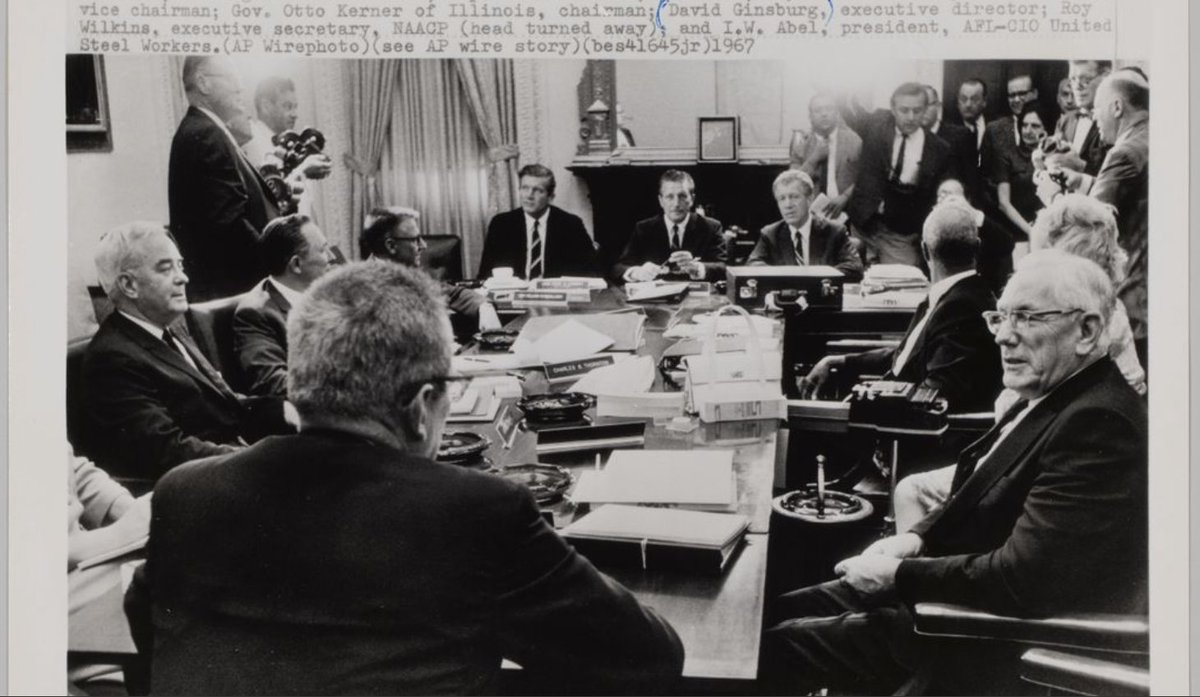
Had a chance to chat with @ThePlumLineGS for his latest piece on Kevin McCarthy's proposed members for the January 6th inquiry.
washingtonpost.com/opinions/2021/…
washingtonpost.com/opinions/2021/…
The Kerner Commission -- launched by LBJ to explore the causes and consequences of the urban riots of the 1960s -- featured some high-profile Republicans, including NYC Mayor John Lindsay, Senator Edward Brooke of Massachusetts, and Representative William McCullough of Ohio. 

The Kerner Commission was thus truly "bipartisan" but it was bipartisan only because the ideological spread of the parties at the time meant that there were liberals and conservatives in both parties, and it was much easier to find allies across party lines.
Lindsay (the liberal mayor of NYC), Brooke (the only African American in the Senate), and McCullough (a champion of civil rights who played a pivotal role in the passage of the 1964 CRA) all fit the purpose of the Kerner Commission's inquiry quite well.
There were Republicans (and conservative Democrats) who objected to the very idea of the commission and were openly hostile to it.
But they weren't appointed to it.
Because, you see, they objected to the very idea of the commission and were hostile to it.
But they weren't appointed to it.
Because, you see, they objected to the very idea of the commission and were hostile to it.
I know, I know. "The past is a foreign country. They do things differently there."
And yet, maybe we could follow their lead, and not put politicians who are intent on undermining an inquiry on the inquiry itself?
Maybe? Just this once?
And yet, maybe we could follow their lead, and not put politicians who are intent on undermining an inquiry on the inquiry itself?
Maybe? Just this once?
• • •
Missing some Tweet in this thread? You can try to
force a refresh












